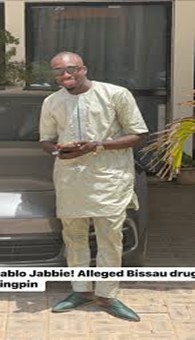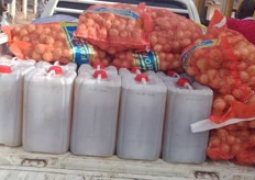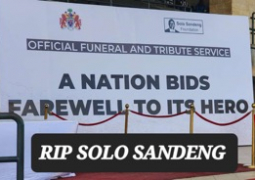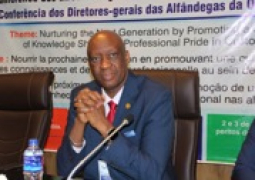
“I put it to you that you and your team had a preconceived opinion before arresting the first accused,” Counsel Tambadou asserted. Meanwhile, Mboge promptly responded: “That is false.”
“When was the decision taken to arrest the first accused person?” Tambadou asked.
The witness responded: “There was a directive from the Office of National Security, so I cannot say exactly when the decision was made. However, upon arrival at our office, I was shown the Terms of Reference (ToR) for the panel.”
Tambadou then asked whether the witness had seen any letter from the Office of National Security instructing them to investigate the first accused. The witness responded in the negative, adding: “I haven’t seen it.”
“Were you part of the team that arrested the first accused person?” Counsel Tambadou asked. The witness responded affirmatively.
When asked whether drugs were found in the accused person’s possession, the witness said, “Yes, drugs were found in his possession.”
In a follow-up question, Tambadou asked if any drugs intended for trafficking were found. The witness replied, “No.”
“In your investigation, did you find any drugs with any of the accused persons that suggest they were trafficking?” Tambadou asked.
Mboge responded: “No drugs were found in quantities that indicate trafficking,” he said.
However, the witness was quick to add that major drug dealers are often not apprehended in possession of large quantities of drugs intended for trafficking.
When further asked how many individuals were involved in the arrest of the accused person, the witness replied that he did not know. At this point, Counsel Tambadou interjected, stating: “I put it to you that your team comprised more than 15 individuals.”
“Did you verify that all the vehicles belonged to the first accused person?” Counsel Tambadou asked. The witness responded: “That task was handled by other members of the panel. In a panel, we work as a team, with each member assigned a specific role.”
However, Counsel Tambadou pressed further: “Did you see any document indicating that the first accused person owns even one vehicle?” Mboge replied, “The first accused person stated in his written statement that he owns several vehicles, and he included this information in the official statement form.”
“Have you seen anyone entering the country through the airport or any other border who had to declare money?” asked Tambadou. Mboge responded tersely, saying: “I don’t work at the border.”
This reply did not sit well with Counsel Tambadou, who interjected: “My Lord, the witness is being very rude, and there’s no need for that.”
Justice Jaiteh intervened to restore order in the court, addressing the witness: “If you do not understand English, please let us know, and we will provide an interpreter so that you may speak in your native language. The question is very simple.”
“Did you see any title document for any of the properties that were in the name of the first accused?” asked Tambadou. The witness responded: “I cannot confirm that.”
Counsel Tambadou further inquired why the wife of the first accused, Nadine Pereira, was arrested. The witness replied: “She was arrested in connection with money laundering, among other things.”
“Mr. Witness, you and your team, armed with guns, went to arrest the first accused because you were misinformed that he was engaged in drug trafficking,” Counsel Tambadou pressed.
Mboge swiftly responded, reiterating: “That is false. After the arrest of the accused, we strongly believed that the money he acquired in the country within two years was the proceeds of drug trafficking. Such an amount cannot be acquired in The Gambia without providing us with tax records or airport declarations to prove the money legally entered the country.”




